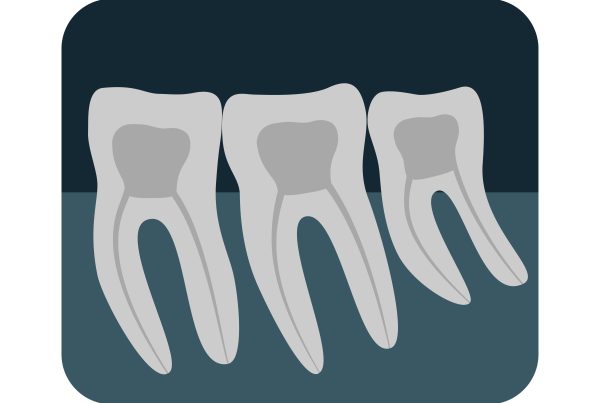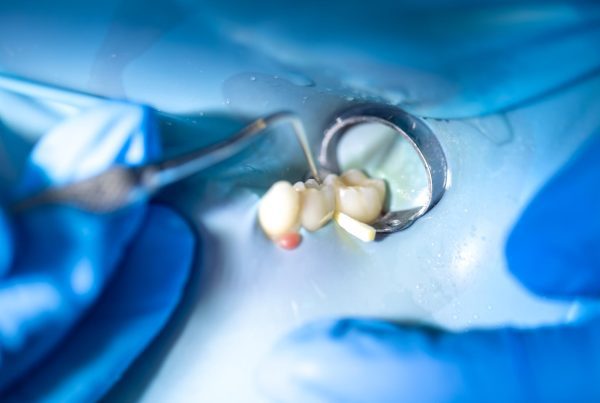A Review Of Supernumerary Wisdom Teeth
Supernumerary wisdom teeth, also known as "extra" or "accessory" wisdom teeth, are a fascinating and relatively rare dental anomaly that has intrigued both dental professionals and curious individuals alike. These additional third molars emerge in excess of the typical four wisdom teeth most people have, creating unique challenges and complications in oral health. While the presence of supernumerary wisdom teeth is not uncommon, the reasons behind their development, their impact on oral health, and the procedures required for their management are still subjects of ongoing research and exploration. In this discussion, we will delve into the intriguing world of supernumerary wisdom teeth, examining their characteristics, potential problems, and the methods used to address them.

What are supernumerary wisdom teeth, and how do they differ from regular wisdom teeth?
Supernumerary wisdom teeth, also known as extra or accessory wisdom teeth, are additional third molars that emerge in the oral cavity beyond the typical set of four wisdom teeth that most individuals have. These extra teeth differ from regular wisdom teeth in that they represent an anatomical anomaly, often exceeding the expected count. Regular wisdom teeth, or third molars, are the last set of molars to erupt at the back of the mouth, usually between the ages of 17 and 25. Supernumerary wisdom teeth, on the other hand, manifest as an overabundance, and their presence can lead to various dental complications, requiring careful evaluation and, in many cases, surgical removal.
How common are supernumerary wisdom teeth, and are there any patterns in their occurrence?
The prevalence of supernumerary wisdom teeth varies among different populations, but they are considered relatively rare compared to regular wisdom teeth. While there is no precise global prevalence rate, studies suggest that supernumerary wisdom teeth occur in approximately 1-3% of the population. Patterns of occurrence can vary, and some individuals may have more than one supernumerary wisdom tooth, further complicating the issue. The development of supernumerary wisdom teeth appears to be influenced by genetic factors, and they are often associated with certain congenital conditions or syndromes. However, they can also occur sporadically without any clear genetic predisposition. Understanding these patterns and risk factors is essential for dental professionals to effectively manage supernumerary wisdom teeth and their potential complications.


What causes the development of supernumerary wisdom teeth?
The exact causes of supernumerary wisdom teeth are not fully understood, but there are several factors that may contribute to their development. Some of the potential causes and factors include:
- Genetics: Genetic factors are believed to play a role in the development of supernumerary teeth, including wisdom teeth. If family members have had supernumerary teeth, it may increase the likelihood of an individual having them as well.
- Congenital Factors: Certain congenital conditions or syndromes, such as cleidocranial dysplasia, Gardner syndrome, and others, are associated with an increased risk of supernumerary teeth, including wisdom teeth.
- Environmental Factors: Some studies have suggested that environmental factors during prenatal development may contribute to the formation of supernumerary teeth, but the mechanisms are not well understood.
- Hormonal Factors: Hormonal imbalances or disruptions during tooth development may also be a contributing factor.
- Tooth Bud Hyperactivity: In some cases, the normal tooth development process may be disrupted, leading to the formation of extra teeth.
It’s important to note that the exact cause of supernumerary wisdom teeth can vary from person to person, and a combination of genetic and environmental factors may be at play. While the precise cause remains a subject of ongoing research, dental professionals closely monitor and address these additional teeth to prevent potential dental complications.
What treatment options are available for individuals with supernumerary wisdom teeth?
The treatment options for individuals with supernumerary wisdom teeth typically depend on various factors, including the number of supernumerary teeth, their location, their impact on oral health, and the individual’s overall dental condition. In many cases, the primary treatment option for supernumerary wisdom teeth is surgical extraction. This procedure is performed by a skilled oral surgeon or dentist and is often recommended to prevent potential dental problems. The extraction process is similar to the removal of regular wisdom teeth, but it may require more intricate techniques due to the unusual positioning or structure of supernumerary teeth.
However, in cases where the supernumerary wisdom teeth are asymptomatic, well-aligned, and do not pose a risk to adjacent teeth or oral health, a “watch and wait” approach may be taken. Regular monitoring through dental check-ups and X-rays is essential to ensure that no issues develop over time. It’s important to note that even asymptomatic supernumerary teeth can potentially cause problems later in life, so careful evaluation and consultation with a dental professional are crucial to determine the most appropriate course of action for each individual case. The decision on whether to extract supernumerary wisdom teeth or not should be based on a thorough assessment of the patient’s unique circumstances and the potential risks and benefits associated with the procedure.


Are there any long-term implications for individuals who choose not to have their supernumerary wisdom teeth removed?
Individuals who choose not to have their supernumerary wisdom teeth removed should be aware of potential long-term implications. While not all supernumerary wisdom teeth will necessarily lead to problems, there are risks associated with leaving them in place:
- Impaction: Over time, supernumerary wisdom teeth may become impacted, meaning they don’t fully emerge from the gumline. Impacted teeth can cause pain, infection, and damage to neighboring teeth, leading to more complicated extraction procedures.
- Crowding: Supernumerary wisdom teeth can exert pressure on adjacent teeth, causing them to become misaligned or crowded. This can result in orthodontic issues and may necessitate orthodontic treatment in the future.
- Cysts or Tumors: Rarely, supernumerary teeth can give rise to cysts or tumors in the jawbone, which may require more extensive surgical procedures for removal and can have long-term implications for oral health.
- Oral Hygiene Challenges: Extra teeth can make it more challenging to maintain proper oral hygiene, increasing the risk of cavities, gum disease, and other oral health issues.
- Pain and Discomfort: Even if supernumerary wisdom teeth are asymptomatic initially, they can become painful or problematic later in life, leading to emergency dental situations.
Therefore, while it is not always necessary to remove asymptomatic supernumerary wisdom teeth, regular monitoring and consultation with a dental professional are essential to assess and manage any potential long-term risks and complications. Each case is unique, and decisions should be made based on individual circumstances.



